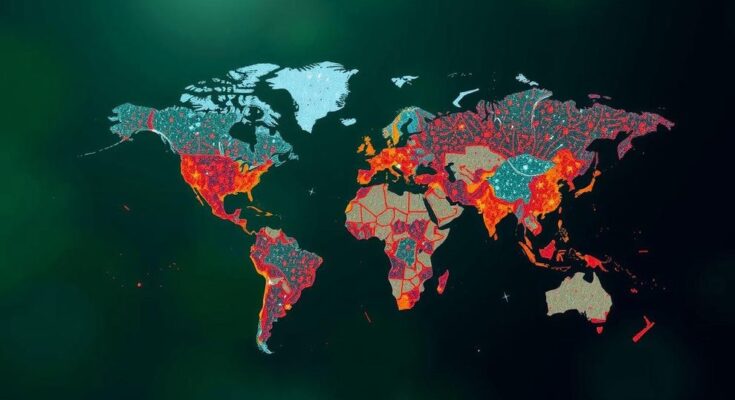A study reveals that nearly 20% of worldwide dengue cases are linked to climate change, with rising temperatures expanding mosquito habitats. Over 12.7 million cases have been reported this year, indicating a significant public health concern. Innovative techniques, such as using Wolbachia-infected mosquitoes, show promise in reducing transmission rates, particularly in areas affected by severe outbreaks.
Recent research indicates that climate change is responsible for nearly 20% of the unprecedented dengue cases observed globally this year. Conducted by U.S. researchers, the study emphasizes the role of rising temperatures in facilitating the spread of dengue, a viral disease transmitted by infected mosquitoes, which has mainly affected tropical and sub-tropical regions. Elevated mosquito activity due to warmer climates is extending the reach of dengue into new geographical areas. According to the findings shared at the annual meeting of the American Society of Tropical Medicine and Hygiene, it is estimated that climate change is increasing the incidence of dengue, with certain regions potentially seeing a 200% increase in cases over the next 25 years. The research, which analyzed dengue infections in 21 countries across Asia and the Americas, posits that approximately 19% of recent dengue cases can be attributed to past climate warming. Ideal temperatures for dengue proliferation range between 20-29 degrees Celsius (68-84 degrees Fahrenheit). The study highlights that 257 million individuals currently reside in regions where climate change could significantly enhance dengue transmission rates. Furthermore, the World Health Organization reported over 12.7 million dengue cases this year, but due to significant underreporting, the actual figure could approach 100 million. In addition to examining the impact of climate change on dengue, researchers are exploring innovative solutions to combat the disease’s spread, including a method involving mosquitoes infected with a bacterial strain called Wolbachia that inhibits dengue transmission. This approach was implemented in Niteroi, Brazil, where it displayed promising results during a severe outbreak that witnessed only marginal increases in cases compared to other affected regions. The emphasis is now on scaling this initiative in collaboration with the Brazilian government to further safeguard populations against dengue outbreaks fueled by climate change.
The increasing prevalence of dengue fever is a growing public health concern exacerbated by climate change. Dengue is primarily spread through infected Aedes mosquitoes, which thrive in warmer environments. As climate change leads to global warming, these mosquito populations are expanding into areas that were previously unsuitable, increasing the likelihood of dengue outbreaks. Understanding the role of climate change in the dynamics of infectious diseases is crucial for developing effective public health strategies. Researchers are also investigating innovative interventions, such as the introduction of Wolbachia-infected mosquitoes, as a means to reduce transmission rates and mitigate the impact of these diseases on vulnerable populations.
In summary, climate change has been identified as a significant factor contributing to the rise in dengue cases worldwide, affecting nearly one fifth of infections. This underscores the urgent need for addressing climate change as a public health challenge. Additionally, innovative strategies like breeding Wolbachia-infected mosquitoes may offer promising avenues for controlling dengue within affected communities. As global temperatures continue to rise, the relationship between climate change and health becomes increasingly critical, demanding further research and proactive measures to protect public health.
Original Source: www.voanews.com




